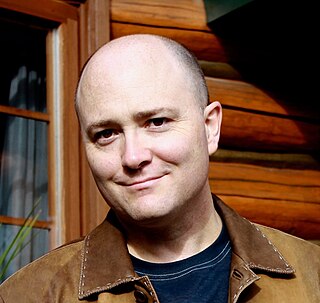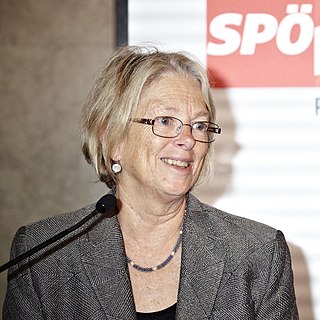
A copyright is a type of intellectual property that gives its owner the exclusive legal right to copy, distribute, adapt, display, and perform a creative work, usually for a limited time. The creative work may be in a literary, artistic, educational, or musical form. Copyright is intended to protect the original expression of an idea in the form of a creative work, but not the idea itself. A copyright is subject to limitations based on public interest considerations, such as the fair use doctrine in the United States and fair dealings doctrine in the United Kingdom.

Intellectual property (IP) is a category of property that includes intangible creations of the human intellect. There are many types of intellectual property, and some countries recognize more than others. The best-known types are patents, copyrights, trademarks, and trade secrets. The modern concept of intellectual property developed in England in the 17th and 18th centuries. The term "intellectual property" began to be used in the 19th century, though it was not until the late 20th century that intellectual property became commonplace in most of the world's legal systems.

A patent is a type of intellectual property that gives its owner the legal right to exclude others from making, using, or selling an invention for a limited period of time in exchange for publishing an enabling disclosure of the invention. In most countries, patent rights fall under private law and the patent holder must sue someone infringing the patent in order to enforce their rights.
Sui generis is a Latin phrase that means "of its/their own kind" or "in a class by itself", therefore "unique".

The history of copyright starts with early privileges and monopolies granted to printers of books. The British Statute of Anne 1710, full title "An Act for the Encouragement of Learning, by vesting the Copies of Printed Books in the Authors or purchasers of such Copies, during the Times therein mentioned", was the first copyright statute. Initially copyright law only applied to the copying of books. Over time other uses such as translations and derivative works were made subject to copyright and copyright now covers a wide range of works, including maps, performances, paintings, photographs, sound recordings, motion pictures and computer programs.

Stanford Law School (SLS) is the law school of Stanford University, a private research university near Palo Alto, California. Established in 1893, Stanford Law had an acceptance rate of 6.28% in 2021, the second-lowest of any law school in the country. George Triantis currently serves as Dean.
Intellectual property rights (IPRs) have been acknowledged and protected in China since 1980. China has acceded to the major international conventions on protection of rights to intellectual property. Domestically, protection of intellectual property law has also been established by government legislation, administrative regulations, and decrees in the areas of trademark, copyright, and patent.
International News Service v. Associated Press, 248 U.S. 215 (1918), also known as INS v. AP or simply the INS case, is a 1918 decision of the United States Supreme Court that enunciated the misappropriation doctrine of federal intellectual property common law: a "quasi-property right" may be created against others by one's investment of effort and money in an intangible thing, such as information or a design. The doctrine is highly controversial and criticized by many legal scholars, but it has its supporters.

The history of patents and patent law is generally considered to have started with the Venetian Statute of 1474.

Norman Stephan Kinsella is an American intellectual property lawyer, author, and deontological anarcho-capitalist. His legal works have been published by Oxford University Press, Oceana Publications, Mises Institute, Quid Pro Books and others.

Pamela Samuelson is an American legal scholar, activist, and philanthropist. She is the Richard M. Sherman '74 Distinguished Professor of Law at the University of California, Berkeley, School of Law, where she has been a member of the faculty since 1996. She holds a joint appointment at the UC Berkeley School of Information. She is a co-founder of Authors Alliance and a co-director of the Berkeley Center for Law and Technology.

Inventions and Their Management is a science book by Alf K. Berle and L. Sprague de Camp. It was based on A Course on Inventing and Patenting by Howard Wilcox and Alf K. Berle, a series of nine papers presented by New York University in cooperation with Inventors Foundation, Inc., issued from 1933-1934. The Berle/de Camp version was published by the International Textbook Company in July 1937. It was reprinted, revised, in September 1940. A second edition was issued by the same publisher in April 1947 and was reprinted, revised, in January 1948, with a third printing in June 1948 and a fourth in June 1950. A third edition was issued by the same publisher in November 1951 and was reprinted, revised, in 1954. An additional printing was issued by Laurel Publishing in 1957. The work was revised and reissued under the new title Inventions, Patents, and Their Management by Van Nostrand in 1959. It was reprinted by Litton Educational publishers in 1968. The work has been translated into Japanese.

Jessica Litman is a leading intellectual property scholar. She has been ranked as one of the most-cited U.S. law professors in the field of intellectual property/cyberlaw.
John R. "Jay" Thomas is a professor of law at Georgetown University Law Center.
Ian Ballon is an American Internet and intellectual property litigator, author of books on Internet law and executive director of Stanford University Law School's Center for E-Commerce. He is the author of the 4-volume legal treatise, E-Commerce and Internet Law: Treatise with Forms 2d edition, the leading legal reference book on Internet law, which was first published in 2000. A second edition was published in 2008 and is updated annually. He is also an intellectual property litigator with Greenberg Traurig LLP, a firm of approximately 1800 lawyers.
Roger M. Milgrim is an American intellectual property lawyer, and the author of two multivolume law treatises: Milgrim on Trade Secrets and Milgrim on Licensing.

Ruth Lade Okediji is an American legal scholar. She is the Jeremiah Smith. Jr, Professor of Law at Harvard Law School and co-director of the Berkman Klein Center. She also founded and serves as faculty director of Harvard Law School's Program on Biblical Law and Christian Legal Studies. Professor Okediji is an internationally renowned expert and scholar on intellectual property, trade and development. In 2017 she was appointed as part of the Creative Commons Board.

Dan L. Burk was a Chancellor's Professor of Law at the University of California, Irvine School of Law and is a founding member of the law faculty. His areas of expertise included intellectual property, gene patenting, digital copyright, electronic commerce and computer trespass.

Rochelle Cooper Dreyfuss is an American attorney who is the Pauline Newman Professor of Law and codirector of the Engelberg Center on Innovation Law & Policy at New York University School of Law.

Robin Feldman is a law professor, researcher, and author best known for her contributions to intellectual property and health care law. Feldman is the Arthur J. Goldberg Distinguished Professor of Law at the University of California, Hastings College of Law Feldman is a widely cited expert on intellectual property and health care law, particularly as it relates to the pharmaceutical industry, drug policy, and drug pricing.











